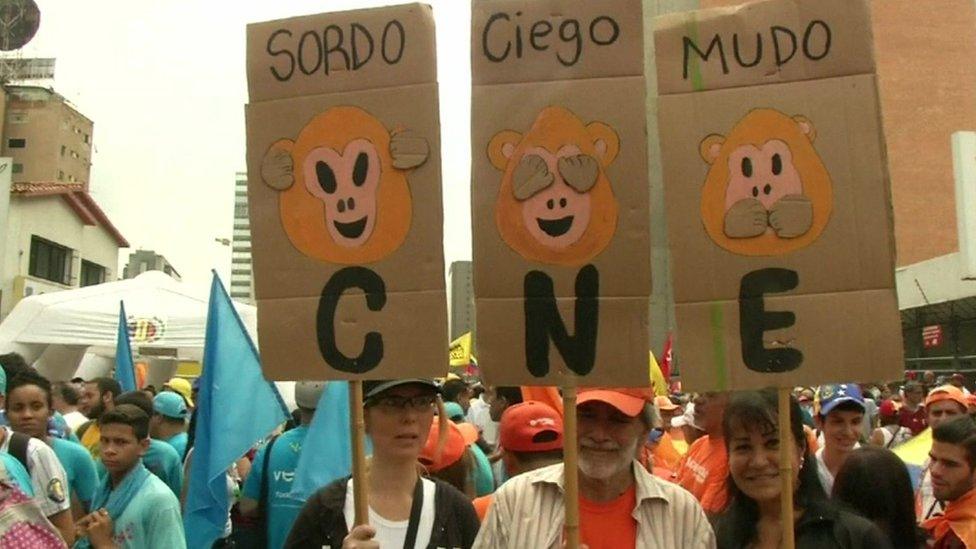Venezuela authorities postpone decision on Maduro referendum
- Published
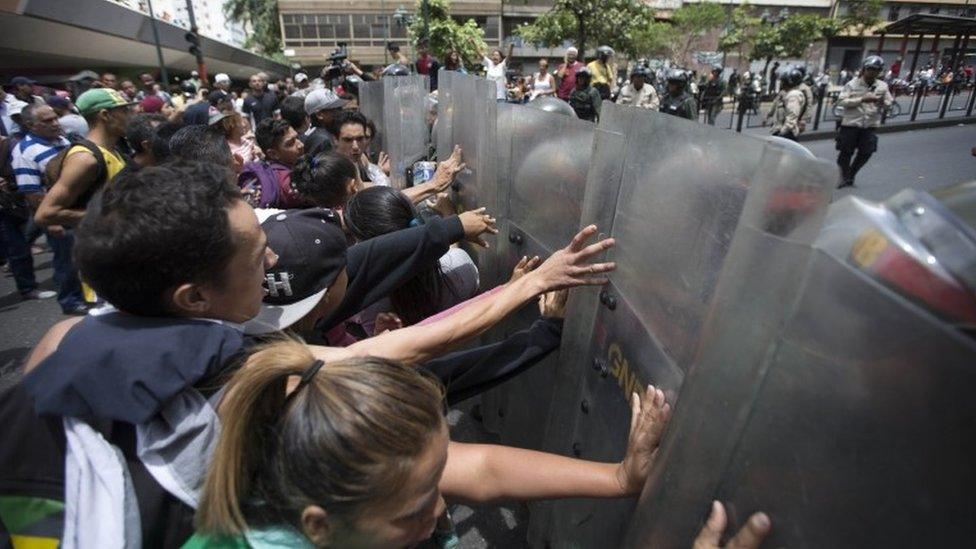
Protesters clashed with police near the Miraflores presidential palace
Venezuela's electoral authorities have postponed a key meeting with the opposition in which they were expected to announce whether to allow a recall referendum.
The opposition gathered 1.85 million signatures in favour of the referendum to oust President Nicolas Maduro.
But the National Electoral Council has yet to say if the petition is valid.
Earlier, protesters complaining against the lack of food in shops tried to march towards the presidential palace.
They were blocked by police, who used tear gas to disperse the march.
"We want food!" the protesters shouted.
They had been queuing for hours outside supermarkets and shops in the area, Reuters news agency reported.
"I've been here since eight in the morning," a woman told pro-opposition broadcaster Vivoplay. "We're hungry and tired."
The opposition blames Mr Maduro's government for the serious economic crisis.
Tension between the socialist government and the opposition has heightened since the latter won the parliamentary elections in December and took control of the National Assembly.
The opposition Roundtable for Democracy (MUD) coalition ran on a promise to remove President Maduro from office before his term runs out in 2019.
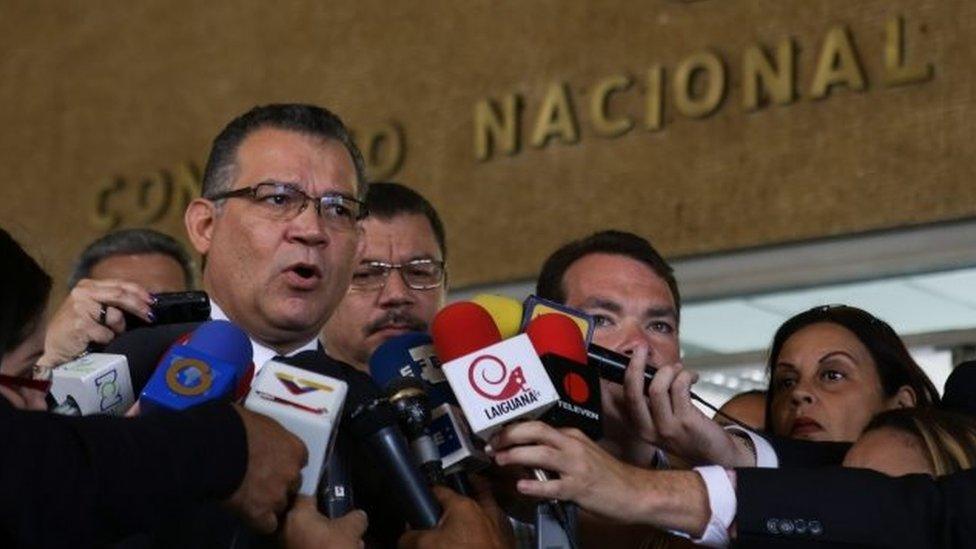
National Assembly Deputy Speaker Enrique Marquez says the recall referendum is the only "escape valve" for social tension
After a proposed constitutional amendment to shorten his term from six to four years was rejected by the Supreme Court, the MUD launched a petition to recall him.
On 2 May they handed the National Electoral Council (CNE) lists with 1.85 million signatures backing a recall referendum, many more than the 197,000 needed at this initial stage.
Members of President Maduro's United Socialist Party (PSUV) allege that at least 10,000 of those signatures are fraudulent.
The CNE's decision on whether it accepts the petition is therefore seen as key, even though this is only the first hurdle on the road to a recall referendum.

Steps towards a recall referendum
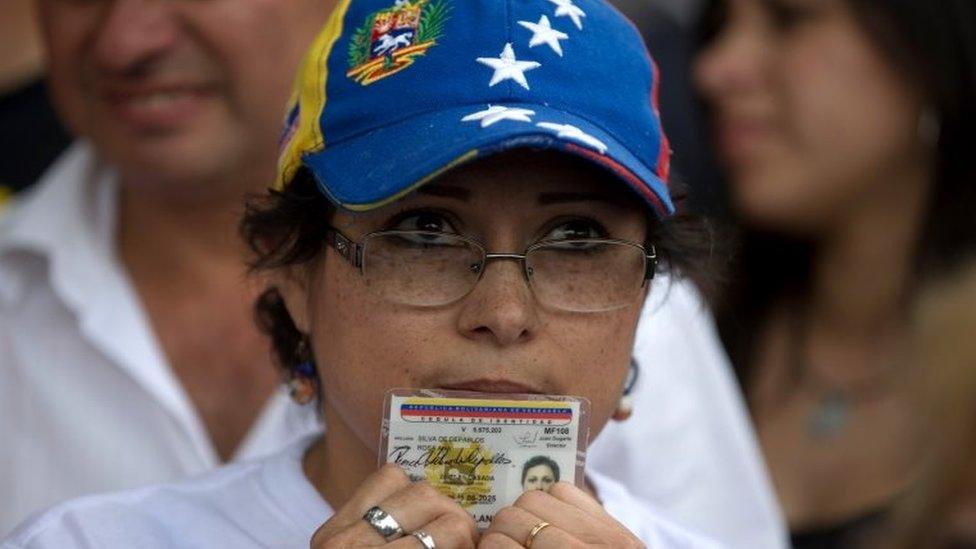
For the recall referendum to be successful almost 7.6 million people will have to vote to oust Mr Maduro
1% of voters on the electoral roll have to sign a petition within 30 days to kick-start the process
20% of voters (almost four million) have to sign a second petition in order to trigger the referendum
For the referendum to be successful, an equal or greater number of voters than those who elected Mr Maduro would have to cast their vote in favour of the recall - he won the 2013 election with 7,587,579 votes

The deputy speaker of the National Assembly, opposition politician Enrique Marquez, said the recall referendum was the only "escape valve" for the pressure building up in Venezuela.
He warned that should the referendum be blocked, social tension in Venezuela could rise to unheard-of levels.
The country is deeply divided into those who support Mr Maduro's socialist policies and those who oppose him, and there have been marches by both sides.
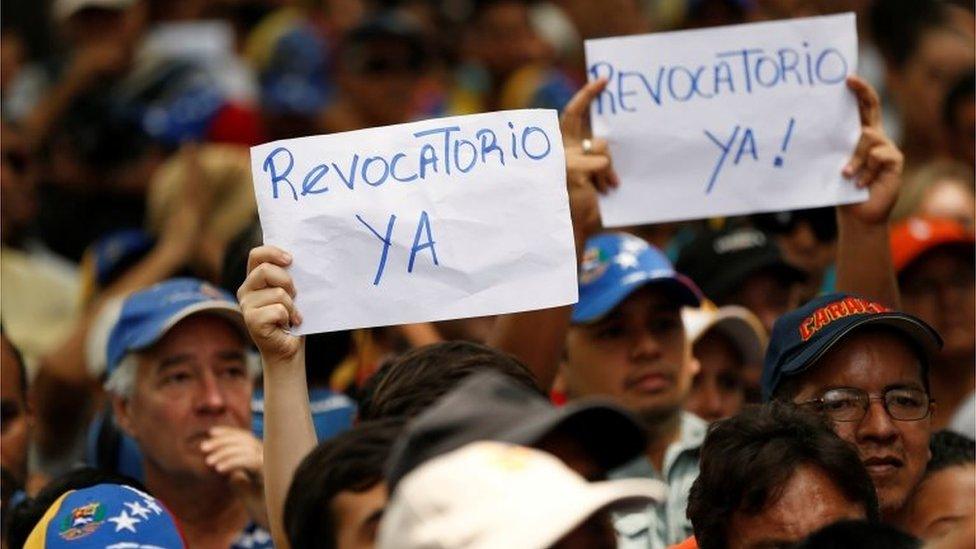
The opposition says 1.85 million people signed its petition for a recall referendum
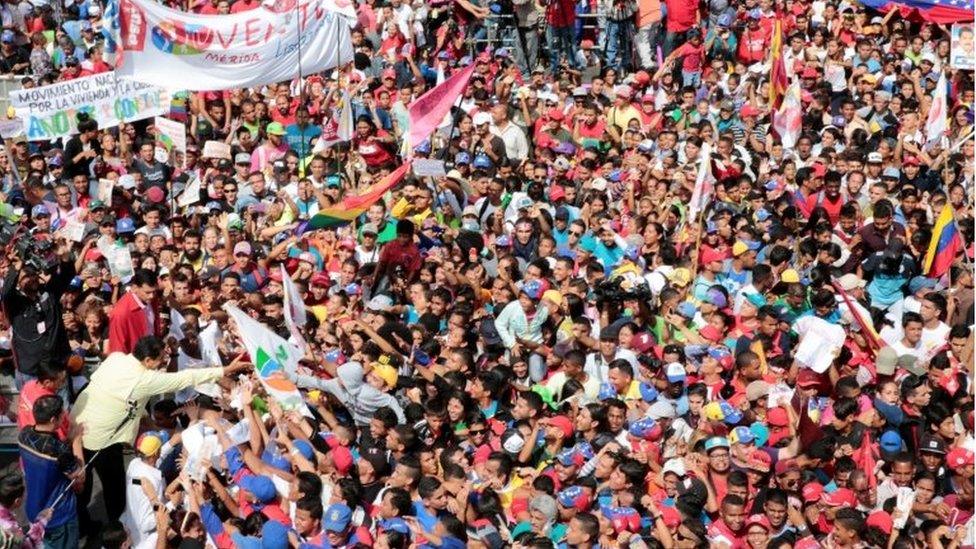
But there have also been rallies in support of President Maduro
But the worsening economic situation in Venezuela, which now has the world's highest inflation rate as well as shortages of basic food and power cuts, means many people who once supported Mr Maduro are demanding change.
The opposition says all its efforts to bring about change are being thwarted by the government and the judiciary, which it alleges has been stacked with supporters of Mr Maduro.
International pressure on the government to sit down with the opposition to tackle the problems has also been mounting.
Why have Chavez strongholds turned against his successor?
On Tuesday, the head of the Organization of American States (OAS), Luis Almagro, called an emergency meeting over Venezuela's "institutional crisis" which could lead to the suspension of Venezuela from the regional body.
In response, Mr Maduro accused Mr Almagro of being "an interventionist traitor" and said Venezuela would fight any attempts at intervention.
The president blames Venezuela's problems on an "imperialist attack" led by the United States and "Venezuela's right-wing forces".
- Published1 June 2016
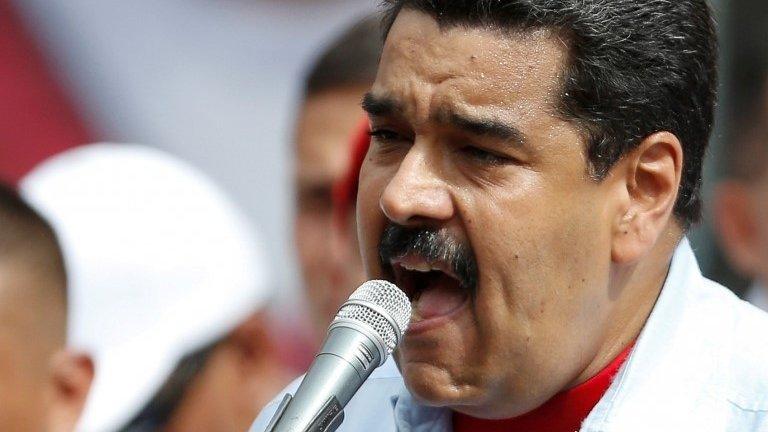
- Published25 May 2016
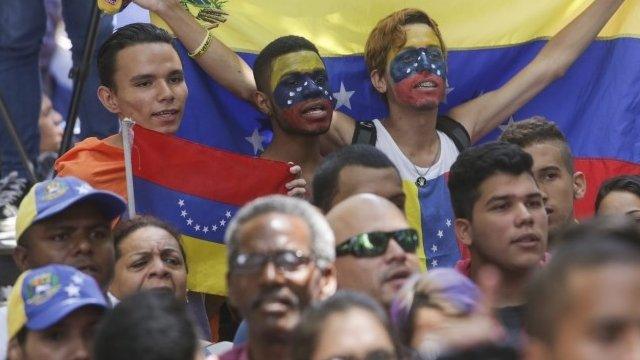
- Published15 May 2016
